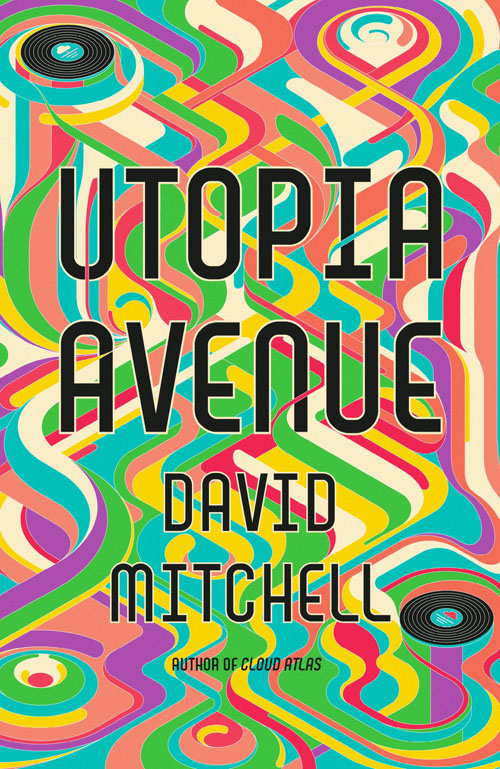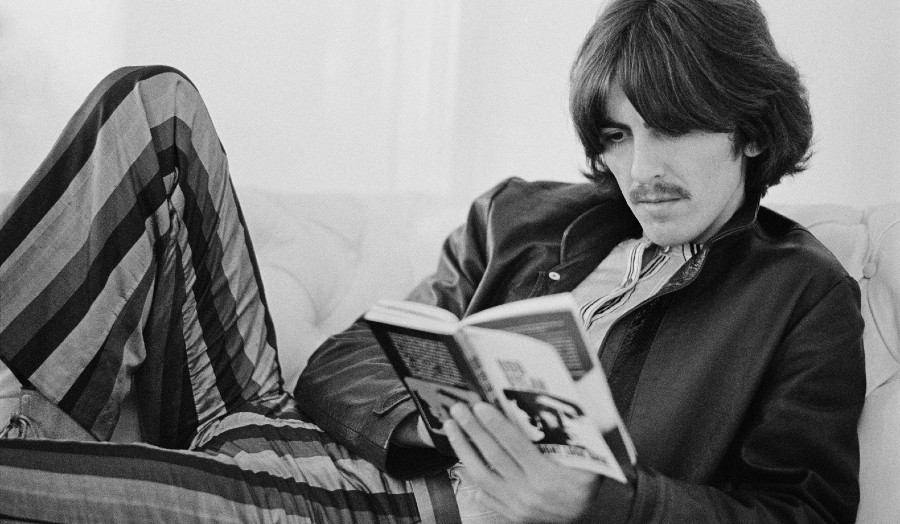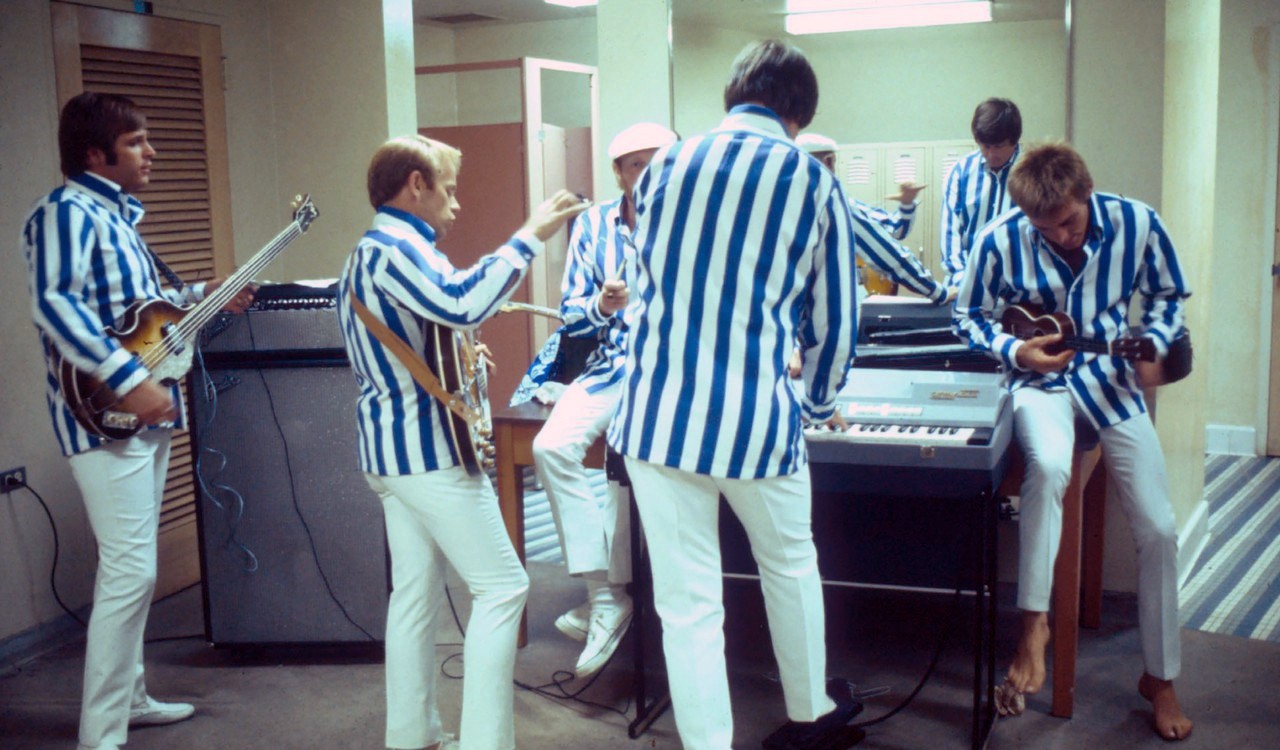David Mitchell’s new novel, Utopia Avenue (Hachette), is the sprawling adventure of the best band you’ve never heard of. Replete with technicolour flourishes, you’ll swear that Utopia Avenue (the band) actually existed.
Set at the peak of London’s Swinging Sixties, Mitchell’s epic unfurls across the Summer of Love and its aftermath, tracing the lives of this mythical musical presence and its constituents. Family trauma, mental illness, love, fame and what it means to be an artist are just some of the worlds that this vivid tale inhabits.

Utopia Avenue details the life and times of the best band you never knew existed. It’s the latest from Booker Prize-shortlisted author, David Mitchell.
The story’s beginning finds bass guitarist and songwriter, Dean Moss, down on his luck on the streets of Soho—the concept of the mighty Utopia Avenue has yet to solidify. Virtuoso Strat-master, Jasper De Zoet and pro jazz drummer, Peter ‘Griff’ Griffin are knocking about in the lower rungs of London’s live music scene.
Elf Holloway has enjoyed a degree of success as a songwriter and is a mainstay of Soho’s vibrant coffee house scene—the epicentre of the ’60s folk explosion. Her recent breakup with her boyfriend and on-stage musical partner finds her doubting herself. It took the vision of an outsider—manager Levon Frankland—to bring these disparate personalities together.
It’s the bond between all these personalities that eventually sees each member reining in self-doubt and believing that their unlikely musical blend can have an impact. Mitchell homes in the creations of the individual members as they get lost in the creative process. He follows Jasper down a midnight rabbit hole: “Writing is a forest of faint paths, of dead-ends, hidden pits, unresolved chords, words that won’t rhyme. You can be lost in there for hours. Days, even.”
The harsh realities of low-budget tours are also part of the band’s early development. Countless miles on the highways and back lanes of Britain are clocked up, as the band dodges projectiles (though sometimes not quickly enough) and heckles along the way to building up a loyal following.
Hard-won, but small victories spur the band’s momentum—such as when Dean and the band receive a hero’s welcome when they play a pub in his native Gravesend. But the reality checks also arrive on a consistent basis, especially for Elf, who has to navigate the overt sexism of the testosterone-soaked rock ‘n’ roll scene of the ’60s on a daily basis. 
As the band’s trajectory becomes more established, Mitchell deftly weaves the character’s backstories into the narrative. Dean’s complex and painful family relationships are examined, revealing how his father’s disapproval—which descends into violence—lights an inextinguishable fire within him. And while Elf comes from a different class, she too struggles to justify her passions and comes face-to-face with inexplicable tragedy.
A shocking event involving Griff threatens to derail the band’s success, while the emotionally aloof Jasper (who constantly trains himself to read subtle cues in his human interactions) confronts his own demon, one which threatens to entirely engulf his psyche. And despite the fact that Levon is in someways the band’s entreé into the establishment, he too has to come to terms with his status as an outsider—gay and hiding in a hostile world.
The intoxicating brew that is Utopia Avenue reaches a critical mass. The band finds fame, which brings further complications. It brings friendships with The Rolling Stones, David Bowie and John Lennon (who lost his mind under a table at a party), but also destruction, manipulation and danger as the band members struggle to bridge the realms of anonymity and notoriety. Inexorably, their newfound status takes the group to the promised land: America.
Though music is at the heart of this novel, its pulsating plot and depth of appreciation for its characters goes way beyond the scope of the psychedelic ’60s. It could be interpreted as a coming of age tale, or a cautionary one about the intoxicating effects of fame and the courage it takes to pursue your dreams. All these things—and so much more—are applicable to Utopia Avenue. It’s a book you don’t so much read, as binge.
Utopia Avenue is out now. Visit Hachette for all the details.



